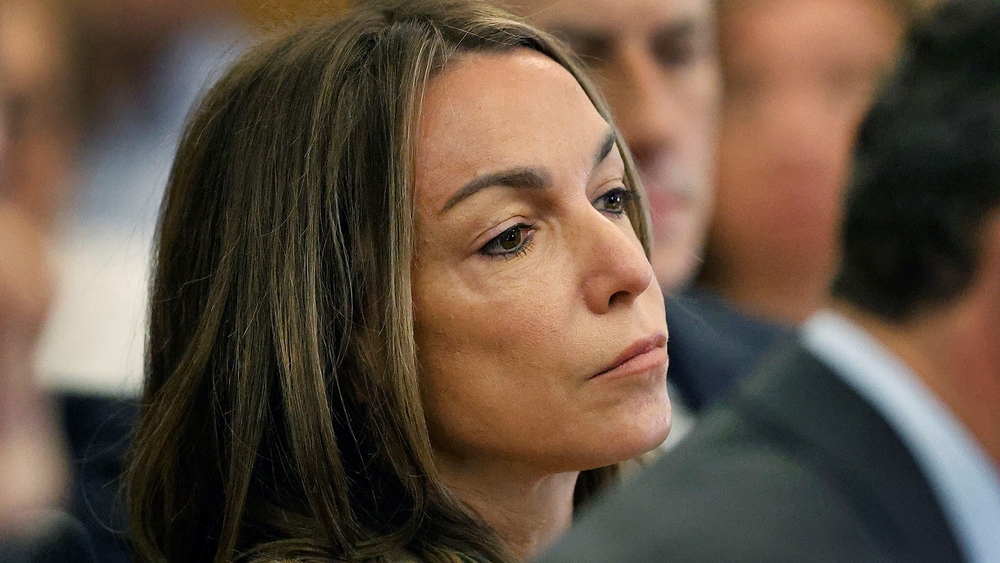Karen Read's defense calls its first witness, marking a new phase in her retrial

BOSTON -- Karen Read's defense called its first witness on Friday, marking a new phase in her retrial in the killing of John O'Keefe, her off-duty Boston police officer boyfriend whose body was found buried in the snow outside a home in Canton, Massachusetts, in January 2022.
Read - whose first trial ended with a hung jury - has already promised a "more robust" case than the one her attorneys put on last year, when they called six witnesses for less than two full days of testimony. Their case this time is "broader and deeper," Read told reporters last week, saying it will include "more witnesses" and last at least a week.
Prosecutors have accused Read of putting her Lexus SUV in reverse and striking O'Keefe with her vehicle just after midnight on January 29, 2022, after the couple went out with drinking with friends who were gathering for an after party at a home on Fairview Road.
But Read's defense argues she has been framed by other off-duty law enforcement who were inside that home, alleging they killed O'Keefe and conspired to frame her. She has pleaded not guilty to charges of second-degree murder, vehicular manslaughter while intoxicated and leaving the scene of a collision resulting in death.
Read's defense team's first witness, accident reconstruction expert Matthew DiSogra, testified Friday that O'Keefe's last recorded interaction with his phone - its manual locking - was more likely to have happened after Read's vehicle stopped going in reverse in front of the home at 34 Fairview.
The manual phone lock happening after the "trigger event" of the Lexus goes against the theory previously laid out by the Commonwealth, with prosecutors claiming O'Keefe's phone was locked right at the time Read began driving in reverse - which ended with her sideswiping O'Keefe with her vehicle.
A key question is whether Read will take the stand. She did not testify in the first trial.
RELATED: Prosecution rests in trial of Karen Read who's charged in death of Boston police officer boyfriend
But jurors in her retrial have already heard from the defendant: Throughout their case, prosecutors - led by special prosecutor Hank Brennan - have played numerous clips taken from interviews Read gave reporters or documentary film crews, working to use her statements against her.
"This is my version of testifying. Doing this film is my testimony," she said in Investigation Discovery's "A Body in the Snow: The Trial of Karen Read." (Investigation Discovery, like CNN, is owned by Warner Bros. Discovery.)
"I want to say what happened," she added, "exactly as it happened."
ALSO SEE: Karen Read retrial: Things to know as defense prepares to make its case in killing of police officer
The last thing played for the jury by the prosecution before it rested its case Thursday was a clip from the documentary showing Read telling the film crew her attorney informed her, she may have "some element of culpability."
"I thought could I have run over him? Could he have tried to get me as I was leaving, and I didn't know it? The music was blasting, it was snowing, I had the wipers going, the heater blasting. Did he come and hit the back of my car, and I hit him in the knee, and he's drunk and passed out and asphyxiated or something?" Read says in the clip.
Read then talks about hiring her attorney, David Yannetti, and asking him those questions. "I said 'David what if ... what if I ran his foot over? Or what if I clipped him in the knee and he passed out or went to care for himself and threw up or passed out?' and David said, 'Then you have some element of culpability.'"
Prosecutors for the Commonwealth of Massachusetts rested their case in chief on Thursday after calling 38 witnesses over more than 20 days of testimony, including the victim's friends and family; members of state and local law enforcement who played a role in the investigation; and experts who analyzed a raft of digital and physical forensic evidence.
Notably absent from the prosecution's case was Michael Proctor, the former Massachusetts State Trooper who led the investigation into O'Keefe's death but was dishonorably discharged from the agency earlier this year for sexist and offensive text messages he sent about the suspect.
Proctor apologized for the texts during his testimony in the first trial, but Read's defense attorneys used them to paint a picture of a flawed and biased investigation - a strategy they have so far echoed in the retrial.
Proctor is included on the defense's list of prospective witnesses, but whether he will testify again remains to be seen.
(The-CNN-Wire & 2025 Cable News Network, Inc., a Time Warner Company. All rights reserved.)










